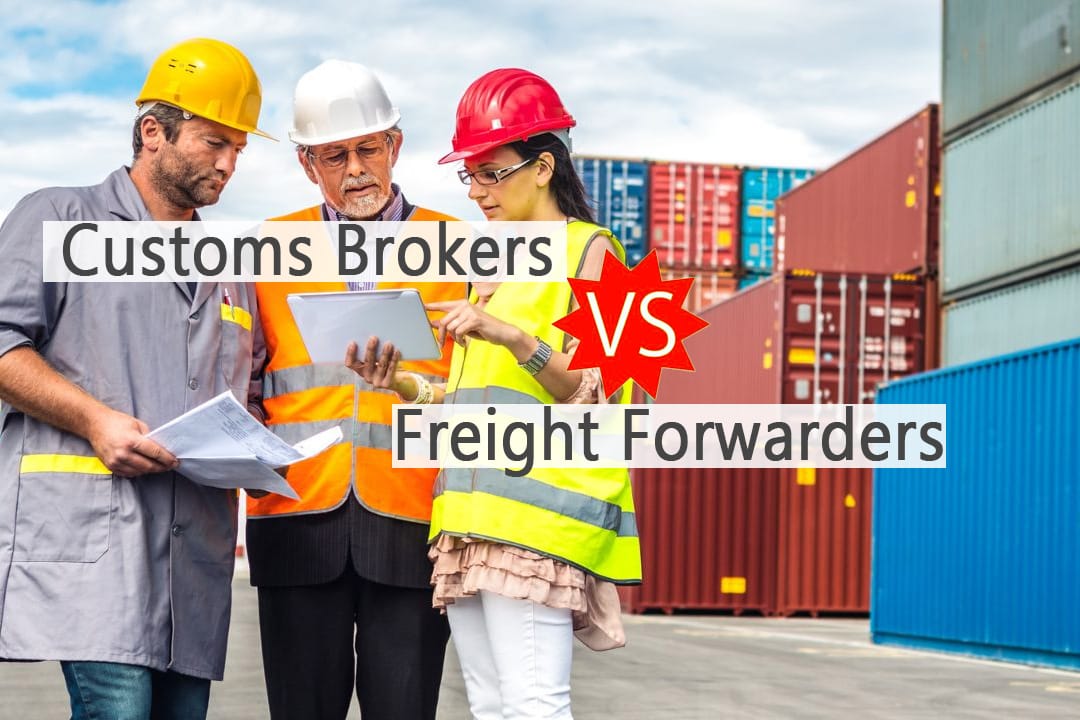
Understanding the Difference Between Customs Brokers and Freight Forwarders
For those involved in international trade, the terms “customs broker” and “freight forwarder” are often mentioned. However, many newcomers find these two roles confusing. Today, we’ll break it down in the simplest way possible, helping you understand their differences and how they work together!
- What Does a Customs Broker Do?
In simple terms, a customs broker’s main job is to assist businesses in completing import and export customs procedures. Any goods crossing international borders must be declared to customs with required documentation, including customs declarations, invoices, packing lists, contracts, and certificates of origin. Once customs review is complete, the goods can be released.
Core Services of a Customs Broker:
✅ Submitting import/export customs declarations
✅ Handling customs clearance procedures
✅ Managing customs inspections and duty payments
✅ Providing trade compliance consulting
When Do You Need a Customs Broker?
If you are importing or exporting goods but are unfamiliar with customs clearance processes or lack import/export rights, you can hire a customs broker to handle the process for you.
- What Does a Freight Forwarder Do?
Freight forwarders, officially known as “international freight agents,” focus on arranging the transportation of goods, ensuring that shipments move smoothly from the point of origin to their final destination. They coordinate with shipping lines, airlines, rail, and trucking services to provide end-to-end logistics solutions.
Core Services of a Freight Forwarder:
✅ Booking cargo space (sea, air, rail, and road)
✅ Managing transportation (trucking, warehousing, transshipment)
✅ Acting as a customs clearance agent (some freight forwarders have in-house customs teams)
✅ Offering logistics solutions tailored to specific needs
When Do You Need a Freight Forwarder?
If you need to export goods and require services like booking cargo space, transportation, customs clearance, and delivery, a freight forwarder is the right choice. They help you select the best shipping method and optimize logistics costs.
- Customs Broker vs. Freight Forwarder: How Are They Related?
- A freight forwarder acts as a “logistics manager,” handling transportation and cargo bookings. Some also offer customs clearance services.
- A customs broker is a “customs expert,” specializing in customs clearance and compliance.
- In simple terms: Freight Forwarder = Arranging transport + booking cargo space, Customs Broker = Handling customs formalities.
- How to Choose the Right Service?
✅ If you only need customs clearance, hiring a professional customs broker is the best choice.
✅ If you need a full logistics solution (booking cargo space, trucking, customs clearance), a freight forwarder is more convenient.
✅ Some freight forwarders have in-house customs brokerage services, while others outsource to third-party customs brokers—always check their credentials and capabilities.
Final Thoughts
- Customs brokers ensure “customs clearance and release,” helping you manage customs paperwork.
- Freight forwarders focus on “transportation management,” ensuring your goods are shipped efficiently.
- They can work independently or collaborate to complete the import/export process.
If you’re new to international trade, it’s advisable to find a reliable freight forwarder who can also coordinate customs clearance for a hassle-free experience!
